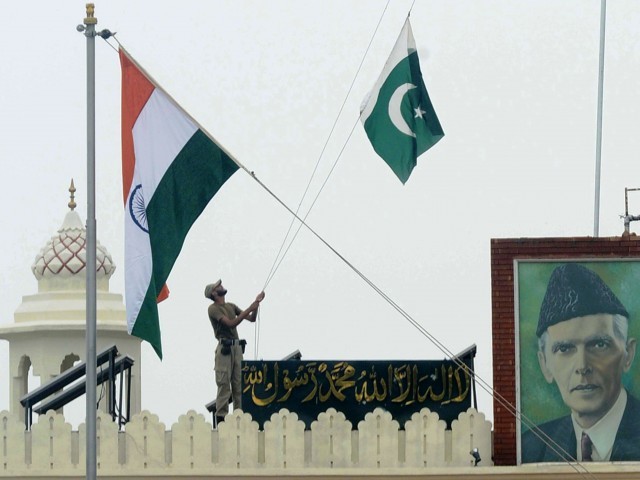
Pakistan and India are targeting next year’s summit of the South Asian Association for Regional Cooperation (Saarc) for ‘major announcements’ to improve their relations that witnessed a thaw in recent weeks after months of brinkmanship.
Earlier this month, the two nuclear-armed neighbours agreed to revive their moribund peace process with a new name — Comprehensive Bilateral Dialogue — to discuss all issues bedevilling their ties, including the long-running dispute over the Himalayan state of Kashmir.
Pak-India ties: Normalisation to ease border tensions: Imran
The foreign secretaries of the two countries are set to meet next month in order to chalk out a roadmap for a series of meetings between officials of the two countries on a range of issues — from terrorism to Jammu and Kashmir.
The two countries are aiming at completing the first round of talks before the Saarc summit that Pakistan will host in November 2016. Indian Prime Minister Narendra Modi, along with heads of government or states of Saarc members, will attend the two-day summit.
An Indian diplomat told The Express Tribune that efforts were being made to have an agreement on some of the issues before the two prime ministers meet on the sidelines of the Saarc summit.
“We expect positive movement on some of the issues before the summit so the two prime ministers have something good to show when they meet,” said the diplomat, who did not wish to be named in the report.
However, the diplomat did not elaborate on which issues the countries could strike a deal.
Under the comprehensive dialogue, there are at least 10 subjects, including Kashmir, terrorism, trade and commerce, CBMs, Siachen, Sir Creek, people-to-people contacts, humanitarian issues and religious tourism.
While a breakthrough on the Kashmir conflict may not be possible anytime soon, progress can be made on some other issues such as CBMs (confidence building measures), people-to-people contacts and trade on the eve of Saarc summit.
“Ideally, we would like to have discussions on all these subjects before the Saarc summit and see where we can find common ground,” said a Pakistani official. “If this happens, it would certainly lay the groundwork for the meeting between Prime Minister Nawaz Sharif and his Indian counterpart Narendra Modi.”
The official said there was a desire and sincerity from both sides to move forward and enter into more cooperative relationship. “If we would have hung on to our respective positions, then it was impossible to move forward,” the official added explaining that flexibility shown by the two sides helped break the ice in talks recently.
India, Pakistan agree to resume comprehensive dialogue
The apparent breakthrough was achieved during a ‘chance’ meeting in Paris between Modi and Nawaz on November 30. Their informal chat led to the previously unannounced talks between the national security advisers in Bangkok and then an agreement in Islamabad to resume the composite dialogue during the Indian foreign minister’s visit to Pakistan for the Heart of Asia-Istanbul ministerial conference.
The Indian diplomat said Pakistan-India relations historically had seen many ups and downs. “What we need to do now is to ensure there are more ups than downs,” he added.
Published in The Express Tribune, December 21st, 2015.

















COMMENTS (18)
Comments are moderated and generally will be posted if they are on-topic and not abusive.
For more information, please see our Comments FAQ